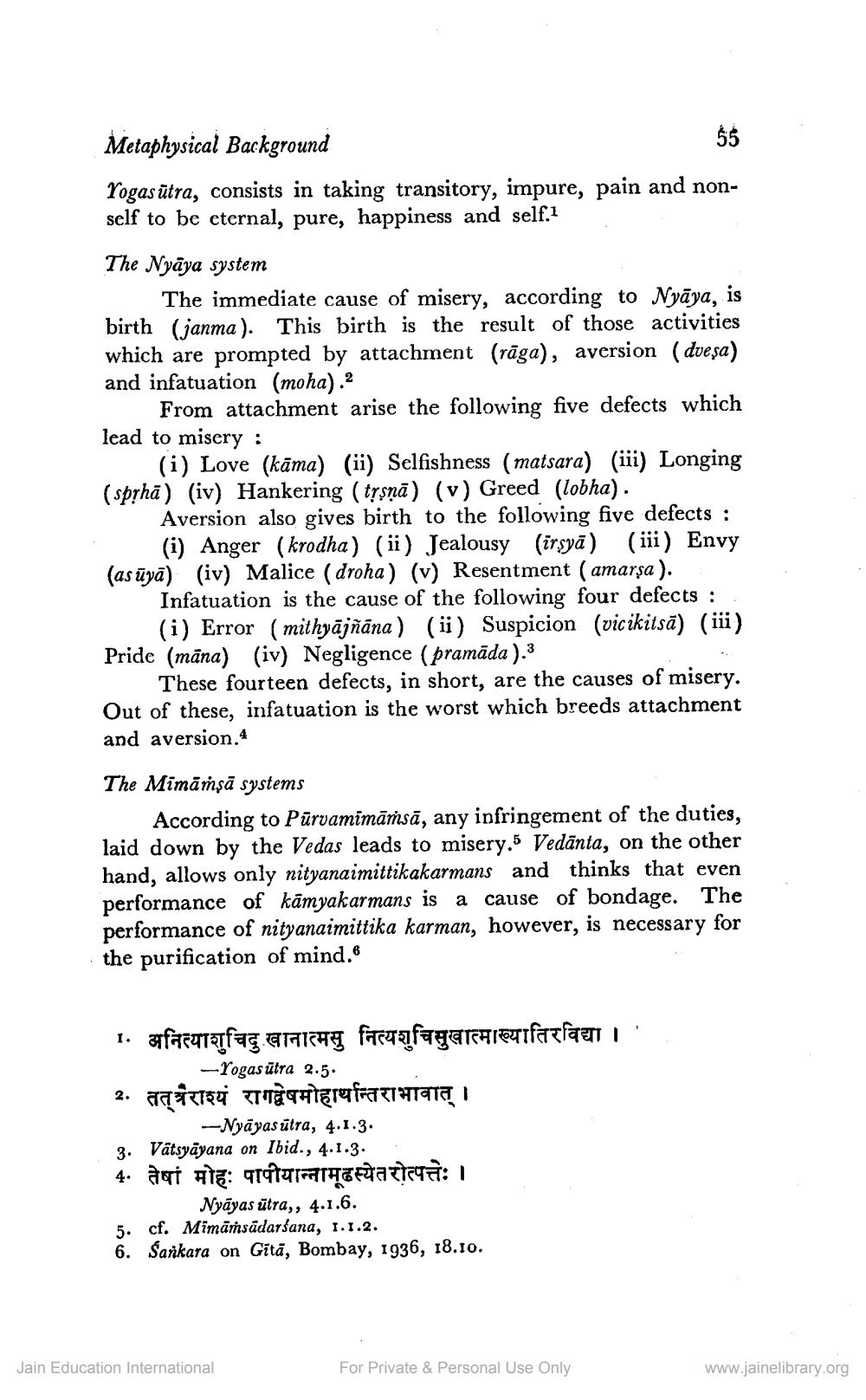________________
Metaphysical Background Yogas ātra, consists in taking transitory, impure, pain and nonself to be eternal, pure, happiness and self.1 The Nyāya system
The immediate cause of misery, according to Nyāya, is birth (janma). This birth is the result of those activities which are prompted by attachment (rāga), aversion (dveşa) and infatuation (moha).2
From attachment arise the following five defects which lead to misery :
(i) Love (kāma) (ii) Selfishness (matsara) (iii) Longing (sprhā) (iv) Hankering ( trşņā) (v) Greed (lobha).
Aversion also gives birth to the following five defects :
(i) Anger (krodha) (ii) Jealousy (irsyā) (iii) Envy (as āyā) (iv) Malice (droha) (v) Resentment (amarşa ).
Infatuation is the cause of the following four defects :
(i) Error (mithyājñāna) (ii) Suspicion (vicikitsā) (iii) Pride (māna) (iv) Negligence (pramāda ).3
These fourteen defects, in short, are the causes of misery. Out of these, infatuation is the worst which breeds attachment and aversion.
The Mimāṁsā systems
According to Pūrvamimāṁsā, any infringement of the duties, laid down by the Vedas leads to misery,5 Vedānta, on the other hand, allows only nityanaimittikakarmans and thinks that even performance of kāmyakarmans is a cause of bondage. The performance of nityanaimittika karman, however, is necessary for the purification of mind.
1. afacarafag arichy facrafagaraistifatfami'
-Yogasūtra 2.5. 2. तत्त्रराश्यं रागद्वेषमोहार्थान्तराभावात् ।
- Nyāyas ūtra, 4.1.3. 3. Vätsyāyana on Ibid., 4.1.3. 4. agi hta aratamata hatia: 1
Nyāyas ütra,, 4.1.6. 5. cf. Mimāṁsādarśana, 1.1.2. 6. Sankara on Gitā, Bombay, 1936, 18.10.
Jain Education International
For Private & Personal Use Only
www.jainelibrary.org




